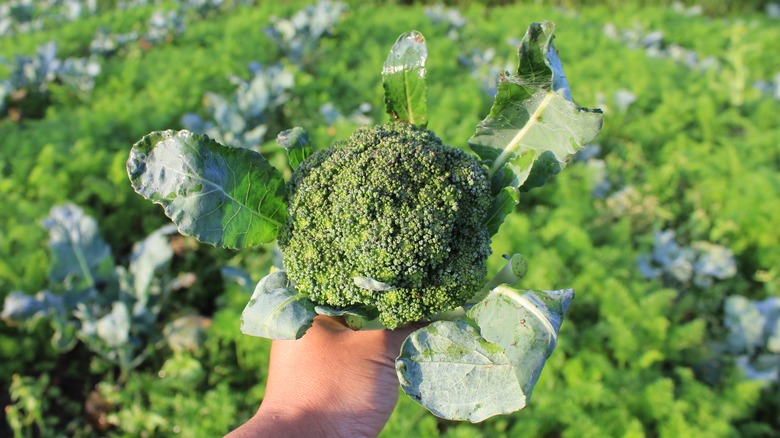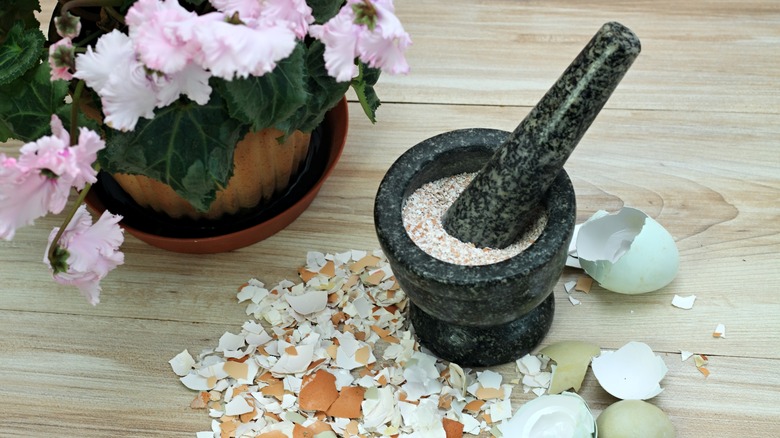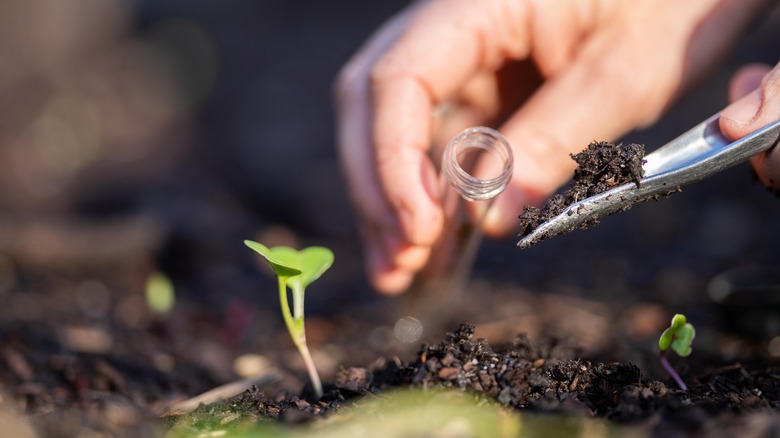Why Do People Add Eggshells When Growing Broccoli & Should You Try It?
Eggshells are one of the food scraps you can add to your compost pile — and there's good reason for it. Eggshells are rich in calcium carbonate, a form of calcium that is essential for plants to grow. They also contain smaller amounts of magnesium, phosphorus, and potassium, all of which are nutritious for plants. Among several expert ways to use eggs in your garden, eggshells can be added directly to your soil and are particularly beneficial when growing broccoli and other vegetables that need higher amounts of calcium.
Calcium helps plants to build cells and is essential for healthy growth. When plants don't have enough calcium, they can show physical signs of this deficiency — cracking or end rot in tomatoes, leaf burn on the tips of lettuce, browning in celery, and empty peanut shells. In broccoli, you may notice stunted growth, curling or cupping leaves, or dark spots on the tips and edges of leaves. If you see these signs, you might want to consider using eggshells when growing broccoli.
Tips for fertilizing your broccoli with eggshells
Gardeners use a number of methods to add calcium via eggshells to their plants. Plants move calcium from their roots up through the stem, so the eggshells need to be well-infused into the soil rather than simply sprinkled on the surface. One way to get the calcium from the eggshells straight to the broccoli's roots is to brew a tea. Boil 10 to 20 clean and dry eggshells in a gallon of water and let it steep overnight. The next day, strain out the shells and pour the tea around the plant, repeating this every one to two weeks.
You also can put dry eggshells into a coffee grinder or use a mortar and pestle to produce finely ground shells to mix with the soil around the broccoli plant. While crushing shells by hand may be easier, it's important to know when to crush versus blend eggshells before using them in the garden. A study by Alabama Cooperative Extension showed that "coarsely crushed eggshells are relatively ineffective as a soil liming material or as a source of calcium," and that they "had to be very finely ground in order to be effective at increasing soil pH." In other words, the smaller the pieces, the faster they will decompose for maximum impact.
Does my soil need more calcium?
If you're seeing signs of calcium deficiency in your broccoli plant, consider conducting a soil test. This measures the soil's pH and analyzes the levels of nutrients — including calcium — that are vital for your plant's health. You can buy home tests at gardening centers or have one done professionally, possibly even through your local county extension office, for a low cost.
Why does pH matter? Having the pH level that is preferred by a particular plant means it will get the right balance of nutrients that it needs to thrive, and a happy plant means a happy gardener. The ideal pH level for growing broccoli is between 6.0-6.8, keeping it slightly on the acidic side. If a soil test shows that the pH is too acidic (below 6.0), adding calcium in the form of eggshells can raise the pH to a point that is more suitable for growing broccoli.


